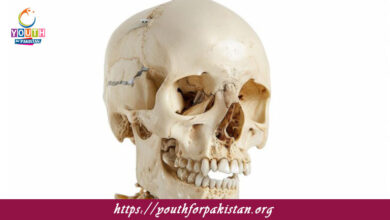Sex Linkage In Human MDCAT Quiz with Answers

Sex Linkage In Human MDCAT Quiz: Sex linkage refers to the inheritance patterns of genes located on sex chromosomes, specifically the X and Y chromosomes. In humans, sex-linked traits are usually associated with the X chromosome, since males have only one X chromosome (XY), while females have two X chromosomes (XX). This difference in sex chromosomes results in a distinct inheritance pattern for traits controlled by genes on the X chromosome. The study of sex linkage in humans is important in understanding genetic disorders and predicting inheritance patterns. The MDCAT Quiz on sex linkage in humans will test your understanding of how these traits are passed down and expressed through generations.
X-linked Recessive Traits
The best known examples of sex-linked heredity in humans are X-linked recessive traits. These have the gene for the trait on the X chromosome and the trait is recessive. Males, therefore, have a higher chance of inheriting and expressing X-linked recessive traits from their mothers. Females need to inherit two copies of the recessive allele (one from each parent) for the trait to be expressed. The classic example of an X-linked recessive disorder is hemophilia, a condition that impairs the ability of blood to clot, predominantly affecting males. Males with the hemophilia allele on their X chromosome will express the trait, while females can be carriers if they have the allele on one X chromosome. The MDCAT Quiz will test your ability to predict how X-linked recessive traits are inherited in humans.
X-linked Dominant Traits
Contrary to recessive traits, X-linked dominant traits are expressed in both males and females who inherit a single copy of the dominant allele from either parent. However, since males have only one X chromosome, a single copy of the dominant allele is enough to express the trait. Females need only one copy of the dominant allele to express the trait but usually have a milder phenotype if they inherit the dominant allele from one parent and a normal allele from the other. The common example for an X-linked dominant disorder is fragile X syndrome, a genetic condition that causes intellectual disabilities, particularly in males. The MDCAT Quiz will test your understanding of the inheritance patterns of X-linked dominant traits, challenging you to differentiate them from X-linked recessive traits.
Y-linked Inheritance in Humans
While X-linked traits are the most common form of sex-linked inheritance, some traits are determined by genes located on the Y chromosome. Y-linked inheritance is passed strictly from father to son, as only males have a Y chromosome. Y-linked traits affect male-specific characteristics, such as spermatogenesis and male fertility. Unlike X-linked inheritance, Y-linked traits are not found in females, since they do not inherit a Y chromosome. The MDCAT Quiz will test your understanding of the inheritance of Y-linked traits and how they differ from X-linked inheritance in humans.
Carrier Status and Sex-linked Disorders
Females, on the other hand, being carriers, possess one normal and one mutated X chromosome for X-linked recessive traits. Carriers usually do not express the disorder but may pass on the mutated allele to offspring. Offspring from a cross between a female carrier and a male who has an X-linked recessive disorder have a 50% chance that each son will have the disorder, while each daughter will be a carrier in 50% of the cases. Females can also exhibit the X-linked recessive disorder in some instances by inheriting two copies of the mutated allele, one from each parent. Determination of the status of carriers is important for providing genetic counseling regarding the chance of acquiring sex-linked disorders. In the MCAT Quiz, you will have the opportunity to test your skills at applying your knowledge of genetic carrier status to the solving of genetic problems involving carrier status and patterns of inheritance.
Sex-Linked Inheritance and Genetic Counseling
The study of sex-linked inheritance is very important in genetic counseling, particularly for families with a history of X-linked disorders. In understanding the inheritance patterns of sex-linked traits, genetic counselors can provide relevant information to individuals and families about the probability of inheriting or passing on specific conditions. Thus, genetic testing and counseling could help families with histories of X-linked disorders such as hemophilia and color blindness by informing them about their likelihood of passing these conditions on to their offspring. The MDCAT Quiz will test your ability in analyzing family pedigrees and predicting the inheritance of sex-linked traits in a variety of genetic scenarios.
Quiz on Sex Linkage in Humans
Taking a MDCAT Quiz on sex linkage in humans will allow you to test your knowledge of how sex-linked traits are inherited and expressed in humans. The quiz will include X-linked recessive and dominant traits, Y-linked inheritance, carrier status, and genetic counseling. Moreover, using Free Flashcards will help to reinforce your understanding of sex linkage, preparing you for complex genetic inheritance problems on your MDCAT exam. This focused practice will ensure you have a solid grasp of sex-linked inheritance, a crucial topic for your studies.

A male who carries a sex-linked recessive allele for color blindness will express _______ color blindness.

In a cross between a colorblind man (X^c Y) and a non-carrier woman (X^C X^C), the probability of having colorblind sons is _______.

A man with hemophilia (X^h Y) marries a woman who is a carrier (X^H X^h). The probability of their sons having hemophilia is _______.

If a female is a carrier for hemophilia, the probability of passing the allele to her daughter is _______.

A woman who is homozygous for the color blindness allele (X^c X^c) will _______ express the condition.

A female carrying a sex-linked recessive allele for a disorder has _______ chance of passing the trait to a son.

In a pedigree showing sex-linked recessive inheritance, affected fathers _______ pass the allele to their sons.

In a cross between a normal woman (X^C X^C) and a colorblind man (X^c Y), all their sons will be _______.
Experience the real exam environment with our expertly designed collection of over 25,000 MCQs MDCAT Mock Tests.





